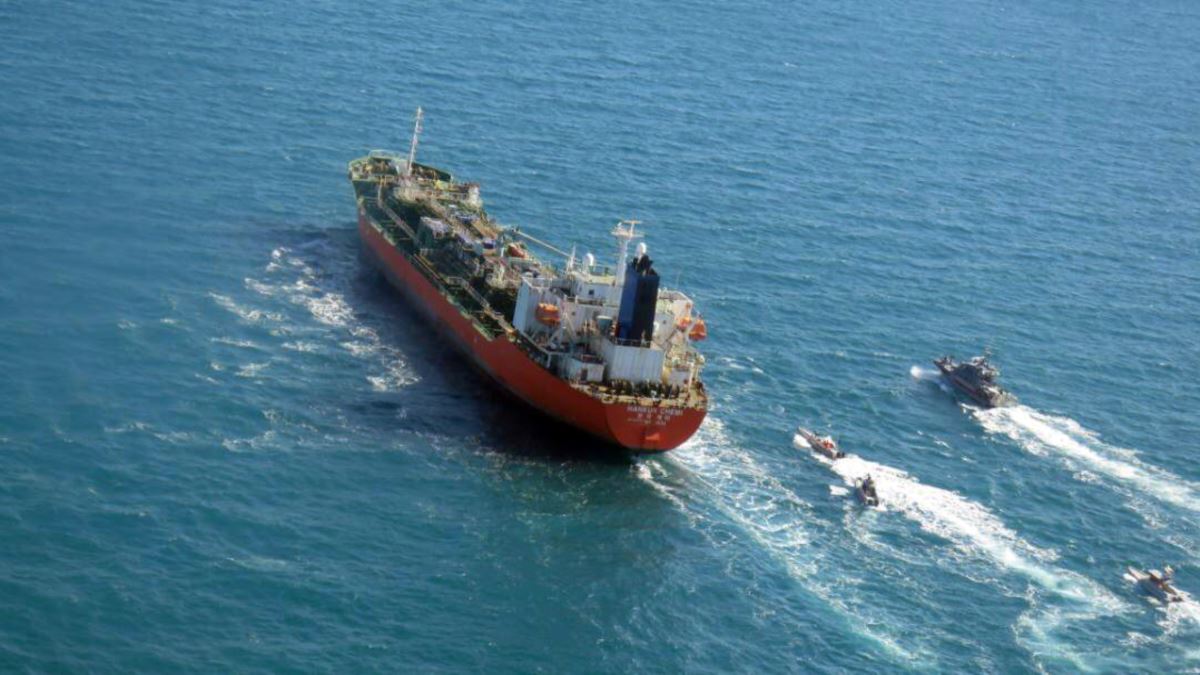
A top South Korean diplomat was in Iran on January 10 to negotiate the release of a vessel and its crew seized by Iranian forces in the Persian Gulf amid a deepening financial dispute.
South Korea’s Vice Foreign Minister Choi Jong-kun met with his Iranian counterpart, Abbas Araghchi, to discuss the seizure by the Islamic Revolutionary Guard Corps (IRGC) of the South Korean-flagged MT Hankuk Chemi on January 4 near the Strait of Hormuz.
Iran has said the ship was seized because it was leaking oil in violation of environmental laws. It has denied the act has anything to do with around $7 billion frozen in Iranian bank accounts in South Korea due to U.S. sanctions.
“Seoul shouldn’t politicize the issue and rather wait until the factual investigation of the case by the Iranian judiciary is complete,” said Araghchi, according to the ISNA news agency.
“For two-and-a-half years, our accounts have been frozen because of U.S. sanctions and during this time South Korea has allowed itself to be bossed around by the United States,” Araghchi said, calling on Seoul to follow an independent policy.
The United States reimposed sanctions on Iran in 2018 after President Donald Trump withdrew Washington from the 2015 nuclear deal between Tehran and world powers.
South Korea was a major buyer of Iranian oil until Washington ended a sanctions waiver on the Asian economy’s imports of Iranian oil in 2019. Since then, about $7 billion of Iranian funds have sat frozen in two South Korean banks.
Ahead of his departure, Choi said that he hoped to secure the early release of the tanker and 20 sailors.
“I’m a little relieved to know that the crew is safe, but the situation is serious,” Choi told reporters at Incheon International Airport, according to comments run by Yonhap News Agency.
The South Korean news agency reported Iran wants South Korea to free the money so it can purchase medicine, medical equipment, and COVID-19 vaccines.
The diplomatic visit will be a “good opportunity to clearly hear once again what the Iranian government wants and to distinguish what [we] can do and cannot do regarding the issue, as well as what needs to be consulted on with the U.S.,” Choi said.
With reporting by IRNA, dpa, and Yonhap.
This post was originally published on Radio Free.